Matthew Evans was milking one of his Jersey cows, on his 28ha farm at Cygnet, and marvelling at the “wizardry of nature” when he was struck with the idea for his latest book.
The chef and food critic turned farmer and food activist, who is best known for his long-running SBS TV series Gourmet Farmer, realised he was not only awed by the way milk is made and the many ways it can be used in cooking – in forms like butter, yoghurt and cheese – but he was also fascinated by the societal debate around this protein-rich dietary staple, which is both loved and hated by people across the globe.
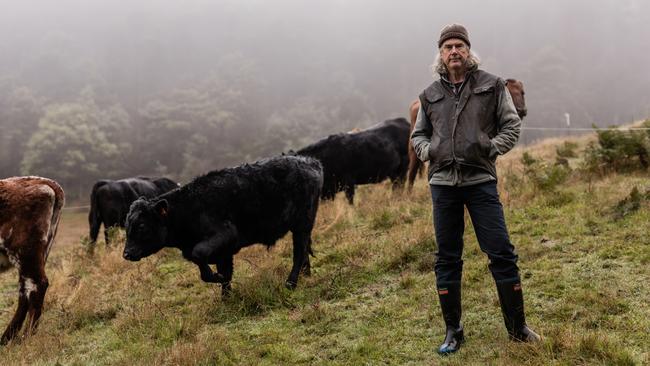
And this set the 58-year-old on a research mission to find out as much as he could about milk and popular milk substitutes, with the result – Milk: The truth, the lies and the unbelievable story of the original superfood – hitting bookstore shelves earlier this week.
“I just thought ‘wow, what’s in milk?’,’’ Evans says, as he marvels at the process of sunlight, water and air nurturing grass which cows then eat and turn into milk.
“I started to wonder, because I’m dealing with this product … some people say it’s amazing, some people say it’s terrible, they say it’s doing so much damage to the planet, and we shouldn’t be drinking it, and we shouldn’t be drinking food intended for another mammal.
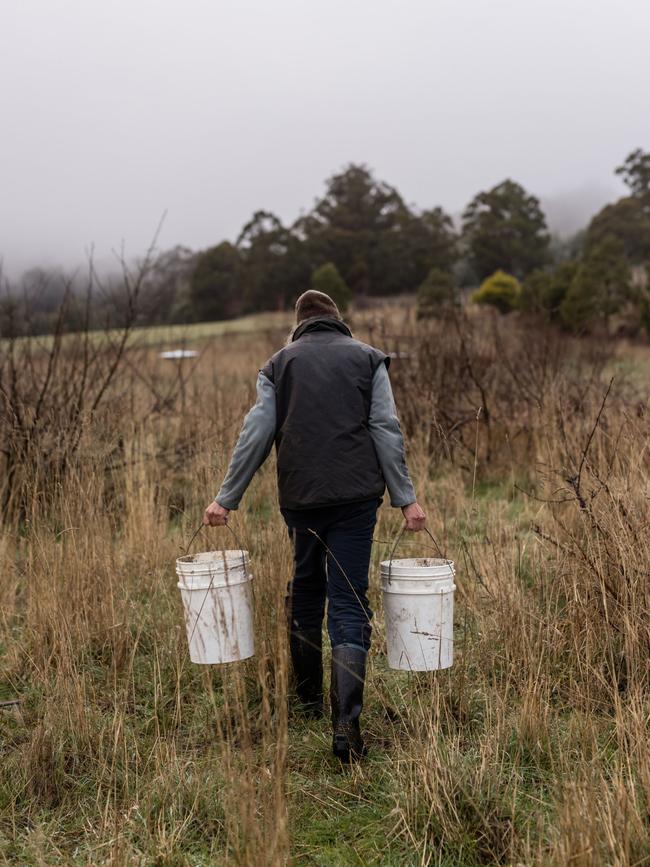
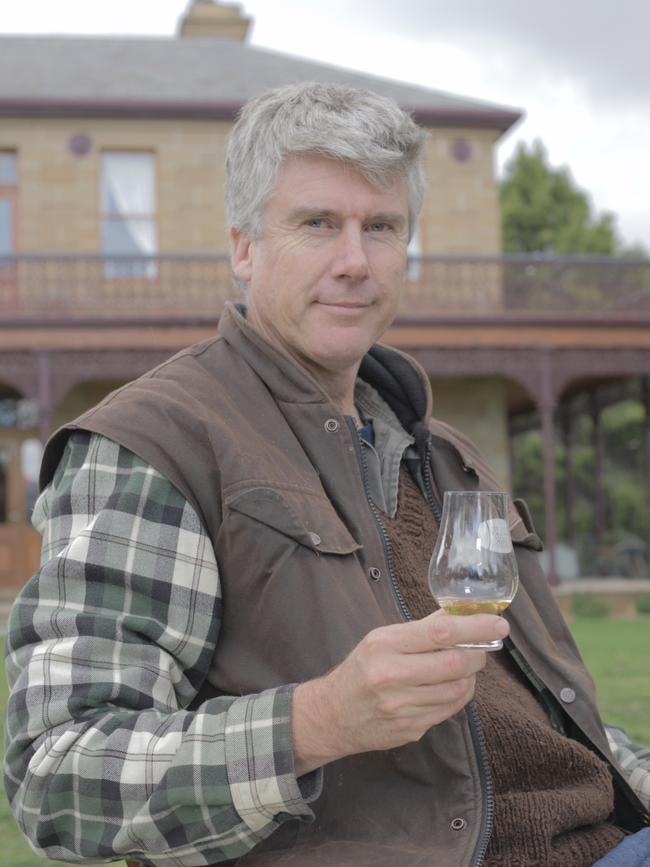
“So I wanted to explore ‘what is milk, what makes it so special?’ And why has it been so reviled and so revered.’’
Milk was actually the thing that inspired Evans to take up farming.
He recalls doing a milk tasting many years ago, with a friend who was a chef, and was astounded by how different each milk tasted, depending on where it was from and how it was produced.
“I tasted so many milks, and they were all so different,’’ Evans says.
“Milk is an expression of place – how they treat the cows and how they feed the cows, and what happens to the product afterwards. And I thought wouldn’t it be amazing to grow my own food and have my own patch of land.’’
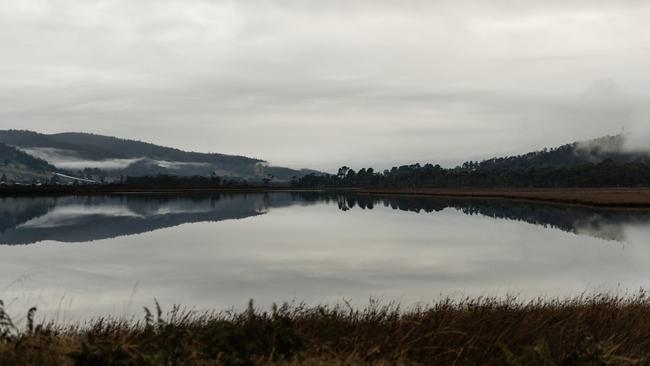
He’s since gone on to establish and run a successful farming and restaurant enterprise – Fat Pig Farm – with a thriving market garden, bee hives and a menagerie of animals, including goats, sheep, pigs, chooks, beef cattle and four milking cows.
But Evans says it wasn’t until more recently that he really began to think about milk’s place within society.
“It seems silly, looking back, but I hadn’t really understood milk’s role,’’ Evans explains.
He says a turning point came when he went out trapping Tasmanian devils with facial tumour researchers from the University of Tasmania and was amazed to discover that female devils give birth to up to 30 young, each the size of a grain of rice.
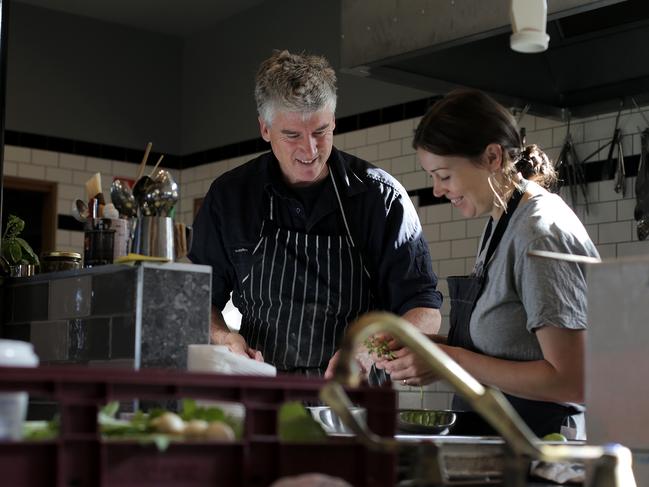
“These babies, essentially little more than foetuses, must all frantically climb up her fur, through all the incumbent hazards of the outside world, and into her rear facing pouch, where they will find only four teats,’’ Evans says in awe.
Only four of the young devils can survive, existing on nothing but milk for the first 100 days until they leave the pouch – by that time they will be 1000 times heavier than they were at birth.
“When a baby latches on for 100 days, it only has milk,’’ Evans says.
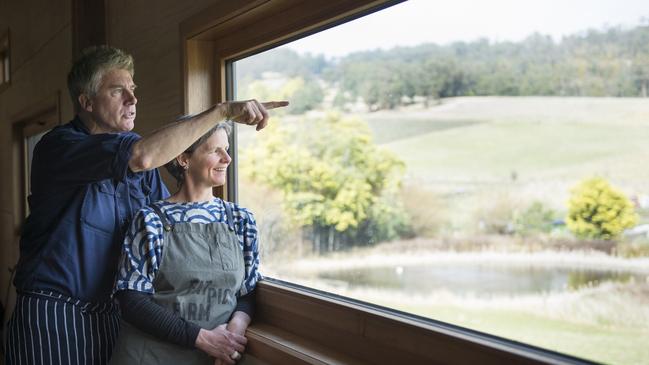
“They form teeth and claws and hair … they become a devil through milk. Devil milk kills golden staph – antibiotic-resistant super bugs. Marsupial milk is incredible, given how the babies are born so little formed. And that made me think more about what’s in human breast milk and cow’s milk, which most people consume throughout their life.’’
The more he researched the more fascinated Evans became.
Figures suggest about three quarters of the world’s population get a substantial nutritional benefit from the milk of a species that is not our own, yet milk’s place in history and culture has often been controversial.
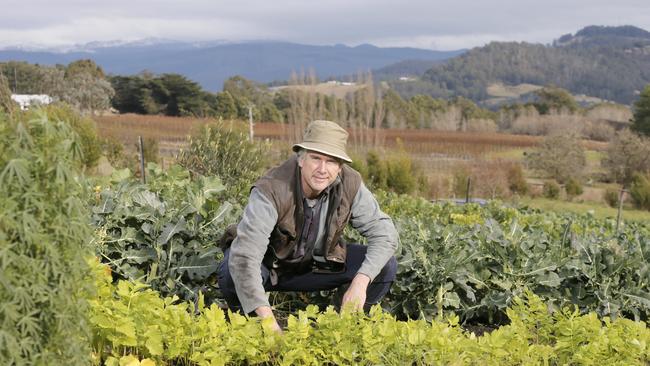
While many of us only think about milk when we’re pouring it onto our cereal or into our cup of tea or coffee, Evans says milk is also the stuff of “international commodity markets, multinational processing companies and aggressive anti-dairy campaigns”.
There are debates over the environmental impacts of milk – in a time when we’re told that cows are contributing to climate change and that plant-based eating has a lower environmental footprint – while some see the subjugation of a cow, or other milk-producing animals, as a form of modern slavery. There is also plenty of debate around breastfeeding human babies versus formula feeding. Meanwhile some people are allergic or intolerant to milk, others won’t drink it due to religious or philosophical reasons. Milk has deep roots in gastronomy. And as cafe culture embraces everything from oat milk, almond milk, soy, hemp and other milks, Evans says it’s a fitting time to look at the various roles milk plays in society.
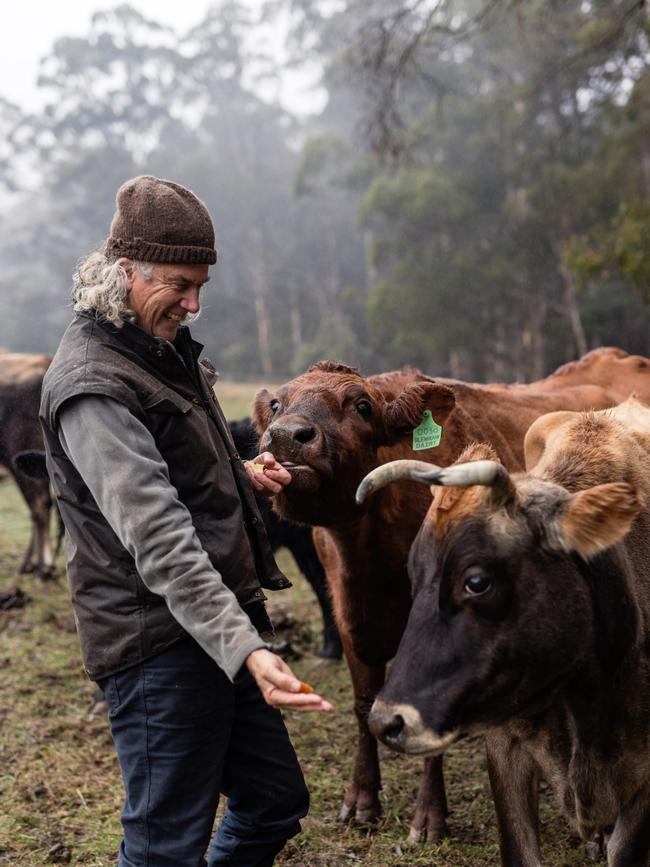
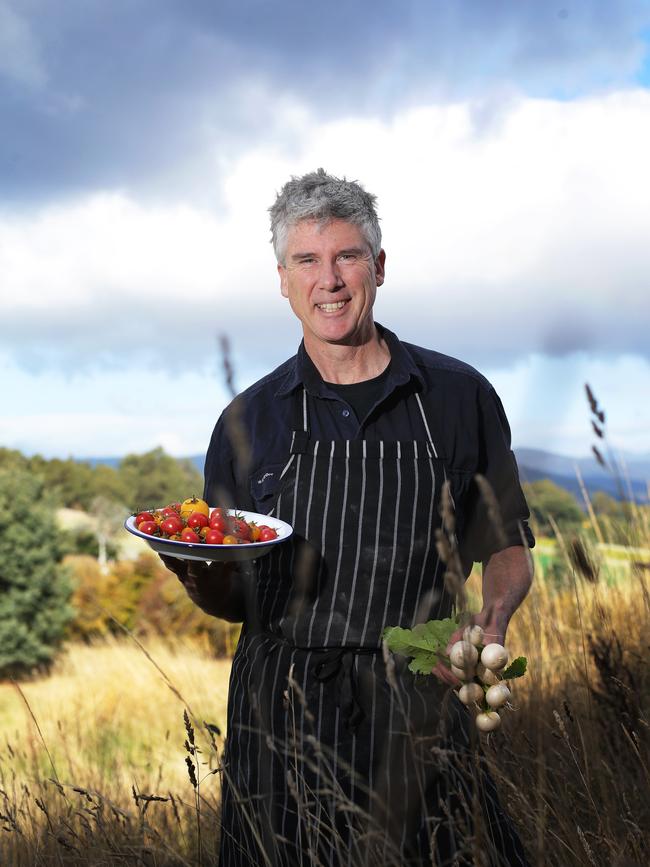
“With so many new ‘milks’ appearing on the market, my aim in this book is to talk about what milk is – to unlock what is good, and bad, and perhaps not yet widely known, about drinking the milk from humans and other animals, as well as substitutes made from plants, so we can appreciate whether we should drink it at all,’’ he says.
“How we see milk, in all its guises, has changed over the centuries, from hero to villain, lambasted or revered – driven by fashion, fanaticism and finances.’’
Early reviews have labelled the book as “a revelation”, “educational” and “eye-opening” with one reviewer declaring: “you won’t look at your bowl of cornflakes in quite the same way after reading this riveting investigation”.
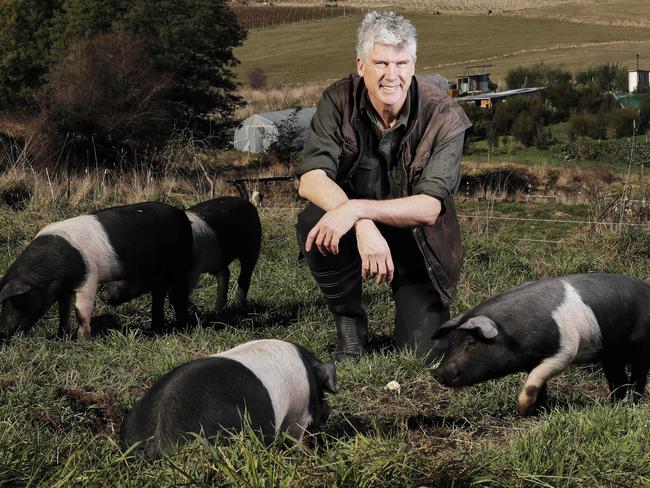
Even Evans was surprised by just how much he learnt while writing the book.
“The thing that amazed me, is I expected to be much more of a fence sitter,’’ he admits.
“I milk cows, I’m pretty biased, I like the flavour, and I think I can do it without damaging the environment – cows make good use of grass. But I didn’t expect to come down in favour about milk as much as I have.
“Nutritionally it’s such a complex product … we’re only just starting to understand what it does for us. It’s a really good source of protein – lots and lots of different proteins. It can prevent colds and flu … we’re feeding our body in ways we’re not going to get from plant milk or their substitutes.’’
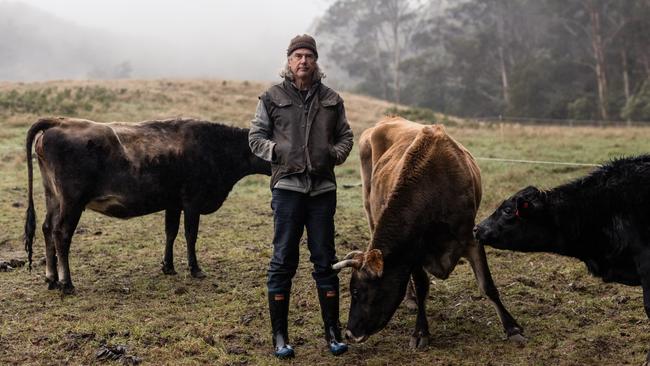
He says research came out just before the book went to print showing that in the UK the number of hospital presentations for vitamin deficiency had tripled in the past 10 years, mostly among women of child-bearing age. And the trend of switching out cow’s milk for plant milks is believed to be a contributing factor.
“Cow’s milk is an incredibly nutrient-dense product,’’ Evans says.
“When we take that out [of our diets] we can’t just replace it with oat milk or rice milk, we need to replace it with lots of other things.’’
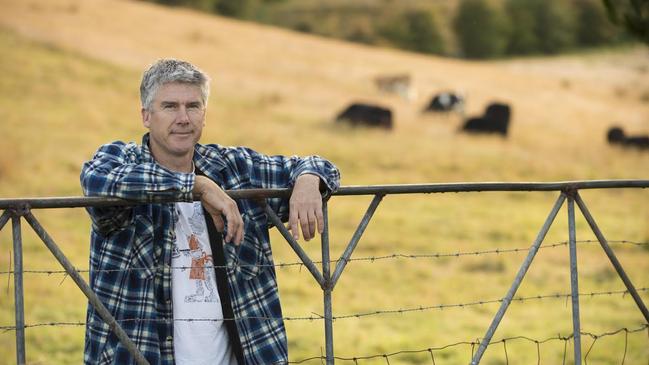
Milk is Evans’s 15th book – including a couple of co-authored titles – with some of his most popular publications including Soil, On Eating Meat, Not Just Jam, Kitchen Basics, Weekend Fare and The Real Food Companion.
But despite the extensive collection of titles, Evans says he’s still just as surprised and excited every time he releases a new book.
“It’s a bit like when I did Gourmet Farmer, and they’d say ‘let’s go again’, I was always gobsmacked,’’ he explains.
“I never thought I’d write one book – I failed English in Year 7 – so to be able to get a book published was pretty exciting. And I’m still super excited, every time, I think ‘how on earth does this happen?’. It’s a really great feeling, I’m always surprised and a bit delighted when it happens.’’
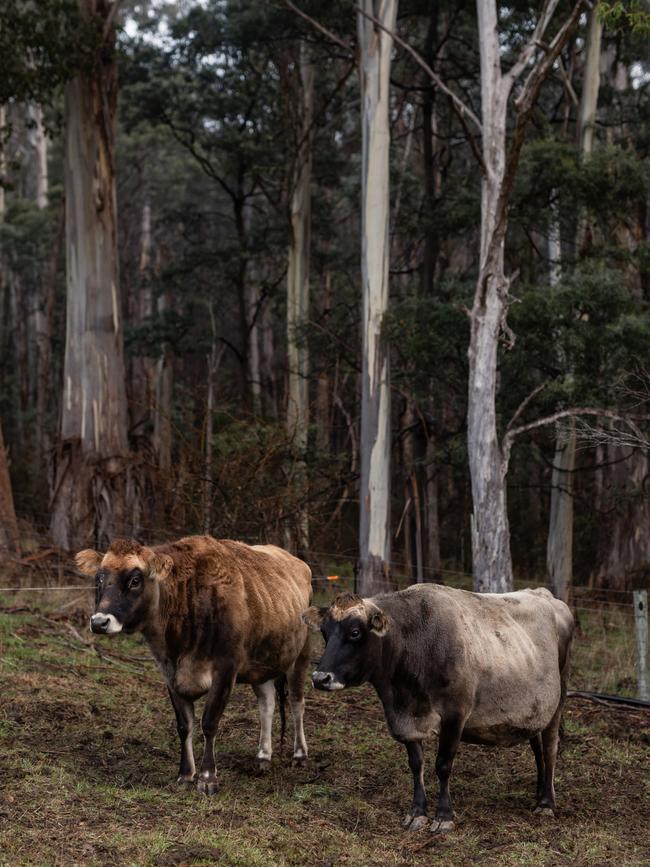
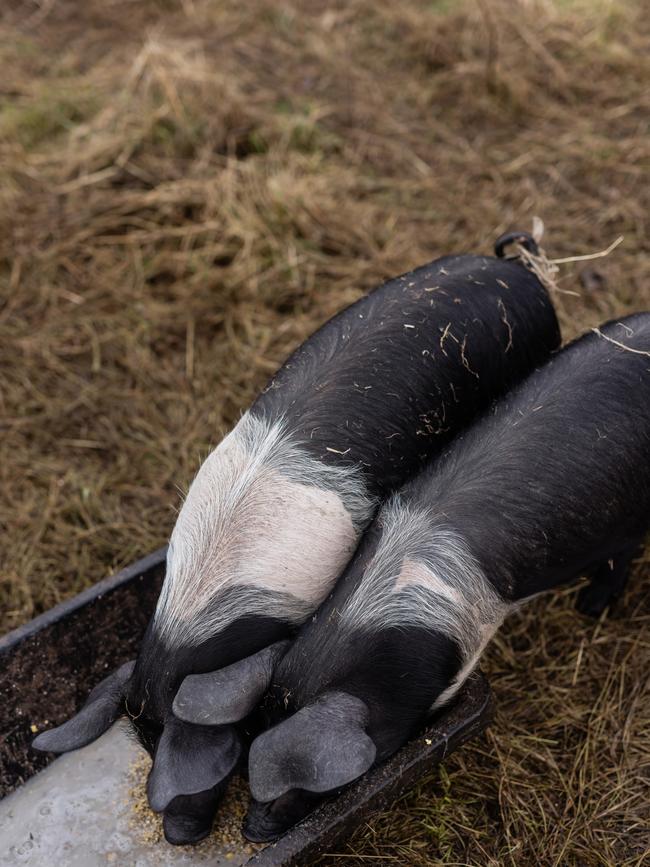
And Evans says it’s even better to know that he has attracted a strong readership.
“Someone must read them, otherwise they wouldn’t keep publishing them,’’ he laughs.
“I can write whatever I want, but the fact someone is willing to publish it and someone will put their hand in their pocket and buy it is a lovely feeling.’’
As well as releasing his new book, Evans is busy preparing for some exciting new changes on his farm.
In May last year he closed his popular Fat Pig Farm restaurant, after more than seven years of operation, announcing to his social media followers that while it had been an “absolute joy” running the restaurant, and he and partner Sadie Chrestman were “immensely proud” of what they and their team had achieved, they had decided it was “time to do something new”.
“We don’t know what that will be yet,’’ Evans said at the time.
“We know it will involve looking after this patch of soil, more plants, more carbon, more microbes. We know it will involve growing food and cooking it. It will probably involve supporting other people to grow food and cook it. We will take a few months off to swim in the river, read books, climb trees and see what ideas bubble up.’’
That break resulted in Evans growing his hair long – inspired by his teenage son who also had long hair at the time – and also inspired some new creative projects.
He is currently preparing for a festival which will be held at Fat Pig Farm in December, bringing together about 400 farmers for a conference-style event.
The restaurant will also reopen to the public from November, for private events, including weddings and other intimate events, and the occasional cooking class.
Evans also expects to make an announcement in coming weeks in relation to a well-respected chef from Victoria who will lease the restaurant over the summer season.
The property’s market garden continues to be run by head gardener Keeley Bytheway – who rents the space and offers a weekly vegie box service under the business name Fat Pig Produce.
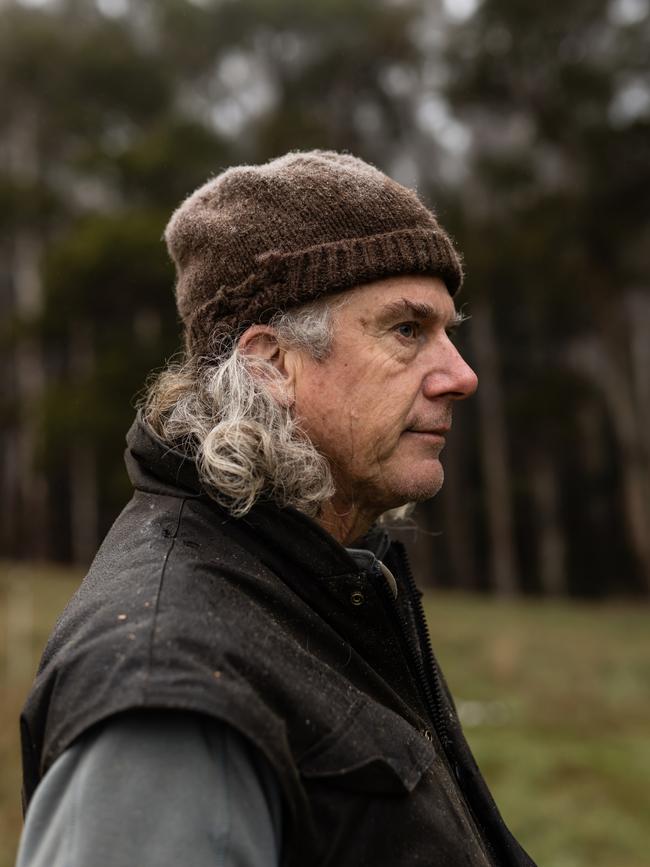
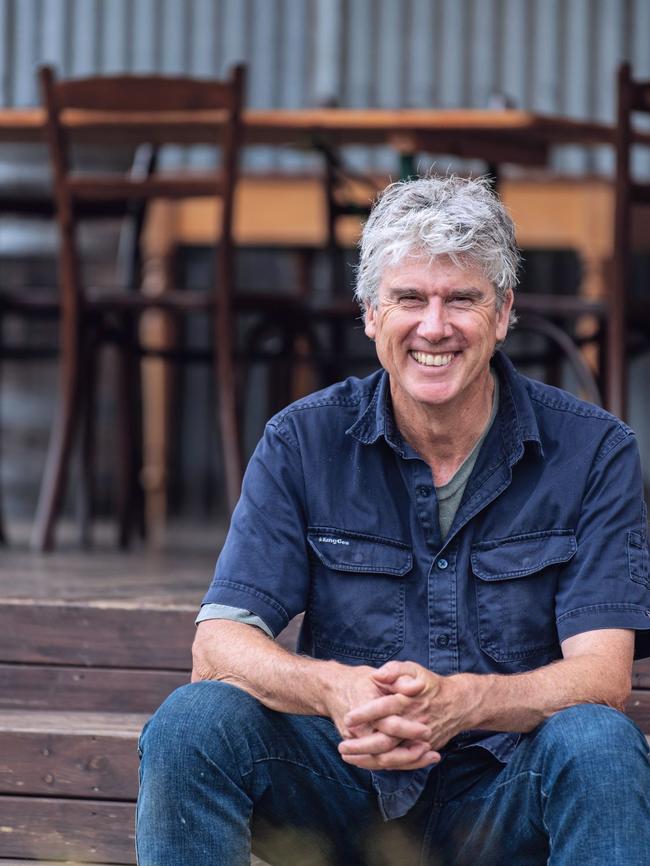
Evans is still loving life on the farm, but says after seven-and-a-half years of running the restaurant while also managing the farm, he’d simply “run out of puff’’.
He was employing the equivalent of 10 full-time staff members, and each year produced enough food for about 10,000 meals, from a property that’s also a wildlife corridor for devils, bandicoots and quolls, with 40 per cent of the property reserved for wildlife.
Chrestman is enjoying working away from the farm as a teacher. And while Evans says he doesn’t yet have any plans for further TV appearances or another book, he has been working on a project with Maggie Beer, looking at how to improve food in nursing homes. And he says another book could be in his future, but it depends if – and when – inspiration strikes.
“This book [Milk] will fly out into the world and inevitably I’ll probably have another idea, and someone mad enough might offer to publish it,’’ Evans laughs.
Evans moved from Sydney to Tasmania 16 years ago, at the beginning of 2008, living in Lenah Valley for a year before buying a 7ha property known as Puggle Farm at Cygnet.
Just before Evans left Sydney he met Chrestman, and after some initial commuting, she settled on the farm and they welcomed son Hedley, who is now 14.
In 2011 they purchased Fat Pig Farm, also at Cygnet, as Puggle Farm wasn’t ideal farmland.
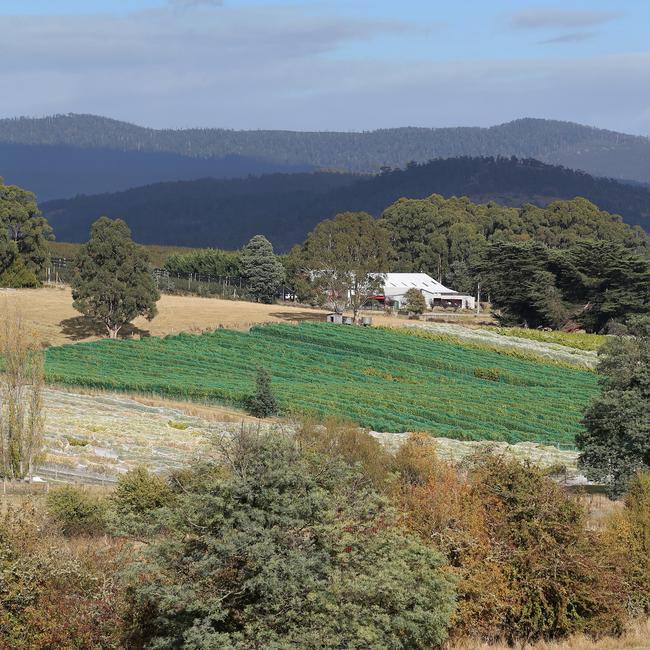
They juggled the two properties for four years while they built a house at Fat Pig Farm, which they still live in, as well as the restaurant. They sold Puggle Farm in 2015.
In those early days of caring for chooks, cows and pigs, and tending to gardens and mending fences – plus all the other odd jobs that come with owning land and keeping animals – Evans admits he had little idea about what he was doing. But what he lacked in knowledge he made up for in enthusiasm.
And while Evans has gained a significant skill set in the years since, he says there’s always so much more to learn.
“I still feel like we don’t know what we’re doing,’’ he laughs.
But one thing he has realised is that the newbies who once turned to their neighbours for help and advice are now being called on by others to offer advice of their own.
“When I look back, I guess when we moved, we’d never really grown much, even in our backyard Sadie and I, we were very new to everything,’’ Evans explains.
“You quickly realise that people who grow up on properties have a lot of inherent knowledge and intuition. We’d go over to other people, and ask ‘how do you do this?’, and now people come to us, they’ll say ‘this cow is looking really unwell, can you come?’ and we help. We used to ring those people, and now we are those people.
“I suddenly realised that for a third of my adult life I’ve been doing these things – having livestock, having apple trees, having a garden and all that stuff. I feel very much a part of the place.’’
Evans grew up in Canberra, as one of four children, in a household where good food was reserved for special occasions.
“I think it was the fact that I was from a British family,’’ Evans explains.
“Mum and Dad came from post-war Britain, which had rationing – we had good food on Christmas and birthdays and the rest of the time food was fuel.’’
But as he grew, Evans discovered that it was possible to eat well every day, and that food “doesn’t have to be posh” to be good – he says something as humble as a potato can be amazing, particularly when grown in a place like Tasmania.
Evans enjoys using what he has learnt – as a chef and a farmer – with others, which is why books like Milk are so important to him. He says he’s grateful he took a risk and farewelled big city life for a life on the land in Tasmania, as it transformed his life.
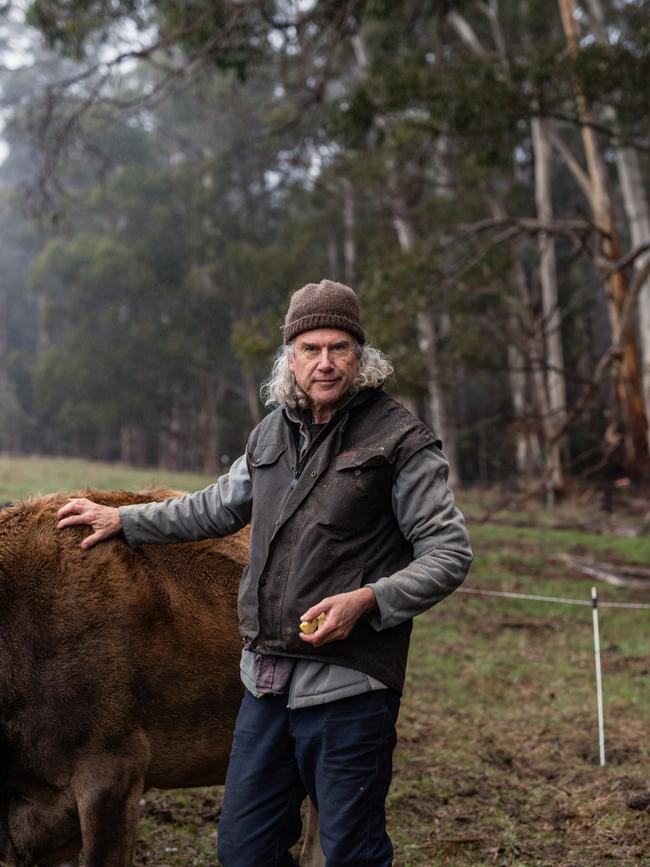
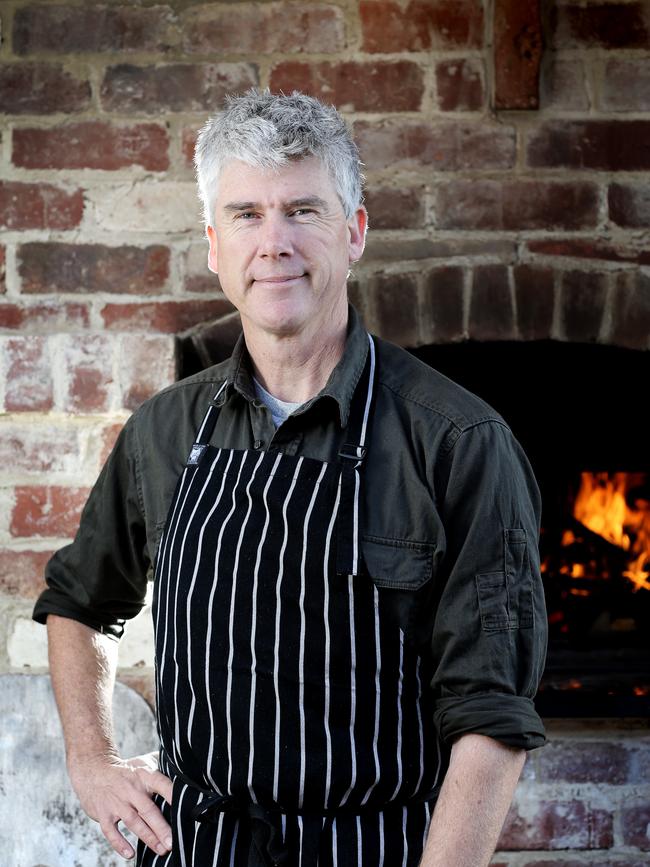
“My career has always been about gluttony,’’ Evans says.
“I became a chef because wanted to eat more and eat better. I became a restaurant critic because I wanted to eat more and eat better.
“But as a farmer, because you grow and rear stuff yourself, I’m also interested in bigger picture stuff – how can we do the best thing for our bodies, our community and our environment through what we put on the table. We all have power, every time we make a choice about what we grow and how we eat, and that’s a beautiful thing. Food is culture but it’s also politics. Eating is an agricultural act, it is power in our hands, three times a day, and it’s important to think about how that might have an impact on the world around us.’’
Evans says interstate friends sometimes ask him what he misses about the mainland since moving to Tasmania. But, while he misses his mum – who lives in NSW – and also a few close friends, Evans says there’s little else he misses, and he could not imagine living anywhere else.
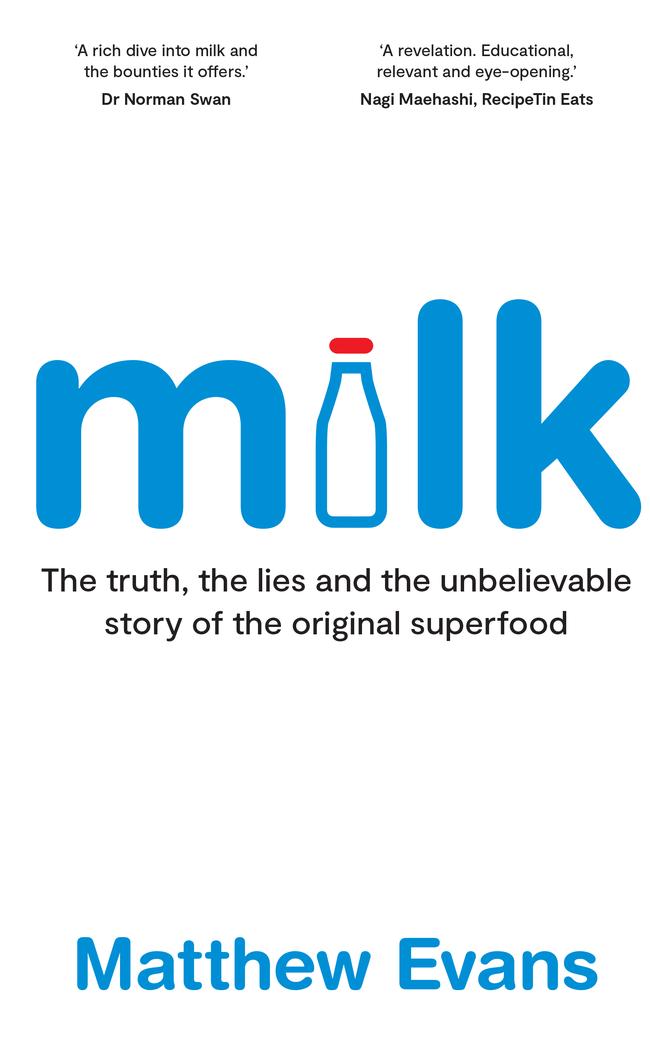
When we chat, I ask how Evans is, and I’m greeted with an enthusiastic “tickety-boo”. His enthusiasm continues as he speaks passionately about his beloved farm, his much-loved animals and the wonderful life he has made for himself and his family in Tasmania.
“What’s to miss, really,’’ he says as he reflects on the surrounding view, the sun adding some warmth to the crisp winter morning, as animals graze nearby.
“We live in paradise, don’t we?’’ •
Milk: The truth, the lies and the unbelievable story of the original superfood, by Matthew Evans, is available now, Murdoch Books, $34.99. For updates on Fat Pig Farm visit fatpig.farm or monitor Facebook and Instagram.

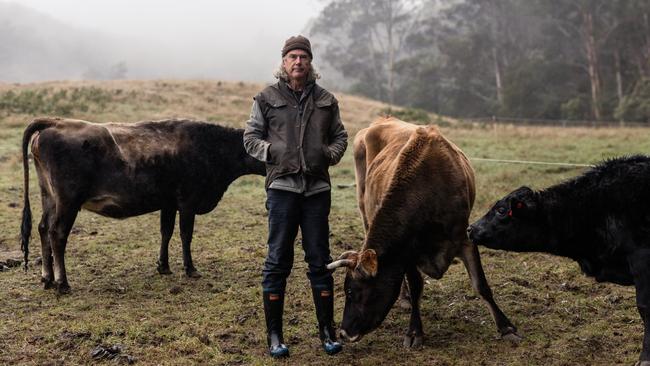
Add your comment to this story
To join the conversation, please log in. Don't have an account? Register
Join the conversation, you are commenting as Logout
Secluded coastal cabin perfect spot to make cherished memories
Secluded cabin ‘Sisters’ located at the stunning Spring Beach on the East Coast is more than just your average holiday ‘shack’, writes Molly Appleton
Mr Universe: Tassie trailblazer making an impact on global stage
Tassie’s Jony Berry was nine when Jennifer Hawkins was crowned Miss Universe 2004. As Mr Universe 2024, he hopes for an equally successful career, while also supporting others through trauma